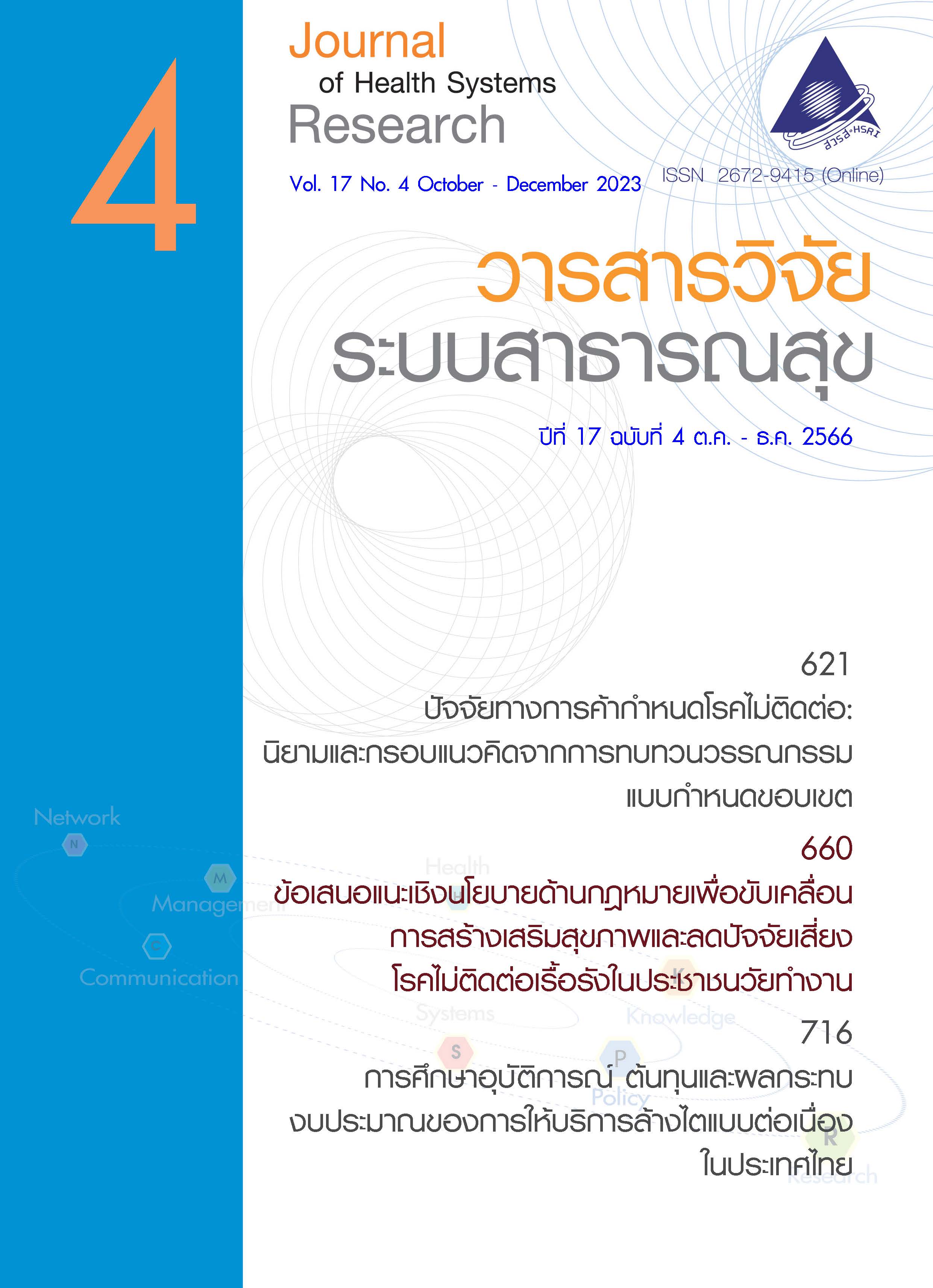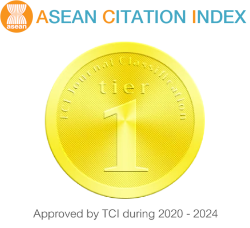Knowledge and Policy Linkage Mechanism between Health and International Trade: A Case Study of the National Committee on International Trade and Health Studies (NCITHS)
Keywords:
health policy, international trade, knowledge linkage, policy coherenceAbstract
This research article studied the role of the National Committee on International Trade and Health Studies (NCITHS) in terms of policy coherence linking knowledge to performance and outcomes. The research employed qualitative methods including documentary research and in-depth interview to collect data based on the research framework namely strategic-constituencies approach, goal attainment, and theory of change. The findings showed that NCITHS could frame knowledge and policy coherence in case of monitoring public policies and became a participatory platform to create ‘trust’ among policy actors to willingly share information. However, there were some obstacles, including the organizational structure, limitation of policy recommendation, inconsistence of position and person in committee’s composition as well as the limitation of presenting academic information to reach policy stream. The research suggests that NCITHS should become a formal platform for participation and create a databank about international trade and health policy. Moreover, the working process should be proactive and support political communication beyond academic circles to the broader public.
References
Krugman P. Competitiveness: a dangerous obsession [internet]. Foreign Affairs; 1994 [cited 2021 Jan 22]. Available from: https://www.foreignaffairs.com/articles/1994-03-01/competitiveness-dangerous-obsession.
Smith R, Chantal B, Zafar M, Beyer P, Nicj D. Trade and health: towards building a national strategy. Geneva: World Health Organization; 2015.
Anderson JA. Explanatory roles of mission and culture: organizational effectiveness in Tennessee’s community colleges (doctoral dissertation). Memphis: University of Memphis; 2000.
Ashraf G, Kadir S. A review on the models of organizational effectiveness: a look at Cameron’s model in higher education. International Education Studies 2012;5(2):80-7.
Jensen, Michael C. Value maximization, stakeholder theory, and the corporate objective function. Business Ethics Quarterly 2002;12(2):235–56.
Latham GP, Locke EA. Self-regulation through goal setting. Organizational Behavior and Human Decision Processes 1991;50(1):212–47.
Robbins SP. Organization theory: structures, designs, and applications. New Jersey: Prentice-Hall; 1990.
Colby D, Collins E. ActKnowledge Webinar: fundamentals of theory of change [internet]. 2013 [cited 2019 Mar 13]. Available from: https://www.theoryofchange.org/wp-content/uploads/toco_library/pdf/TheoryofChangeFundamentalsWebinarJune2013.pdf.
Martz W. Evaluating organizational performance: rational, natural, and open system model. American Journal of Evaluation 2013;34(3):385-401.
Information Center of National Health Commission Office. The 1st – 6th Meeting Resolution of The National Health Assembly 2008-2013 [internet]. 2016 [cited 2021 Mar 22]. p. 18-19. Available from: https://infocenter.nationalhealth.or.th/node/26939. (in Thai)
The Constitution of the Kingdom of Thailand B.E. 2550 (2007). (Aug 24, 2007). (in Thai)
Information Center of National Health Commission Office. The 1st – 6th Meeting Resolution of The National Health Assembly 2008-2013 [internet]. 2016 [cited 2021 Mar 22]. p. 200. Available from https://infocenter.nationalhealth.or.th/node/26939. (in Thai)
Downloads
Published
How to Cite
Issue
Section
License
Copyright (c) 2024 Journal of Health Systems Research

This work is licensed under a Creative Commons Attribution-NonCommercial-NoDerivatives 4.0 International License.
Journal of Health Systems Research is licensed under a Creative Commons Attribution-NonCommercial-NoDerivatives 4.0 International (CC BY-NC-ND 4.0) license, unless otherwise stated.




